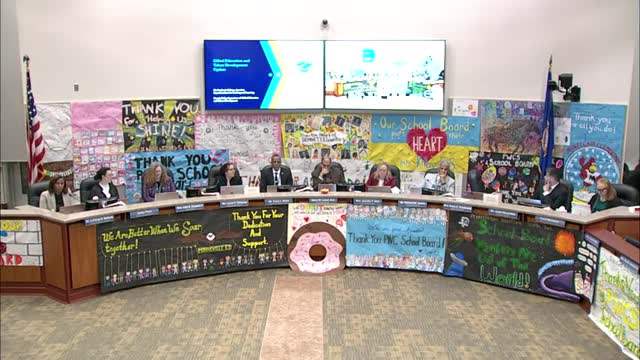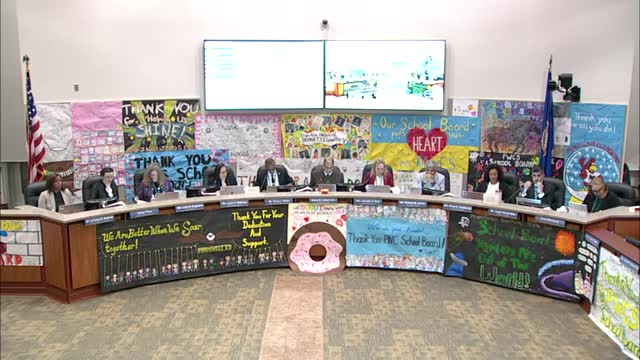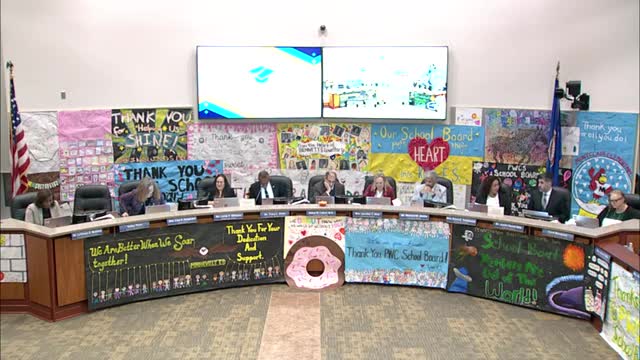Article not found
This article is no longer available. But don't worry—we've gathered other articles that discuss the same topic.

PWCS updates gifted education plan, reports growth in identified students and outreach efforts

Public hearing on FY2026 budget draws speakers on security, special education and transgender student policies

